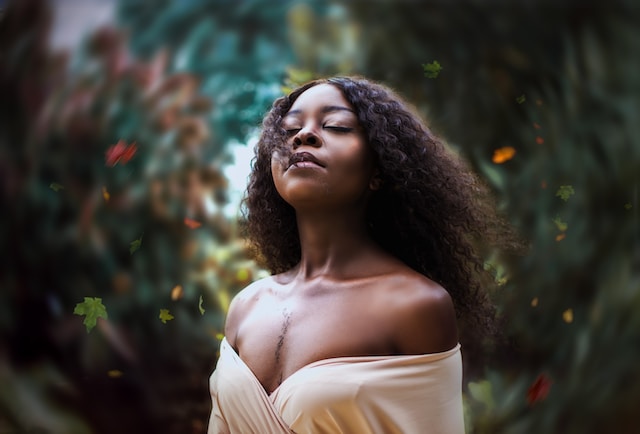For many people of color, hair is something of a wonderful showpiece – a beautiful tool we use to express how we see ourselves and how we want to communicate with the world. And when it comes to obtaining the resources to care for it – for those of us African Americans who live, work and study in highly populated, diverse cities – the concept of close proximity to all is one we’ve come to expect and take for granted.
But even in today’s society where speed, convenience and accessibility reign supreme, entire swaths of the United States continue to force residents – those with thick, curly or coily hair – into nearly impossible circumstances when searching for trusted hairstylists who are capable of working with their hair type – if they can locate them at all.
Referred to as “Black hair deserts” – a phenomenon that doubly affects Black individuals – they are places (most often, but not exclusively rural areas) where there are very few or zero salons with stylists who are proficient in working with textured hair. It normalizes the refusal of hair services based on race due to a total lack of education and a generalization that all “Black hair” is problematic.
Those knocked back by Black hair deserts are often compelled to spend hours traveling over towns or taking flights across the country to get the most basic of hair care services. They heavily reference tutorial videos or opt for family members to do each other’s hair, but these methods are not an option for those who relocate or have physical limitations. And if they are actually able to find a salon that will take them on as clients, they often face discriminatory practices such as imposed upcharges for tightly-coiled curl types or undertaking a large portion of the labor prior to arrival – services typically included for straighter-haired patrons.
Although Black women spend nine times more than other groups on hair care, according to a Nielsen report – in 2018 alone, Black U.S. shoppers accounted for $54.4 million of the $63.5 million spent on ethnic hair products – surprisingly, Black hair deserts are quite common across this great country of ours. While they do not only occur in the United States, they are inherently connected to racial segregation and systemic racism – two mechanisms of a white power structure that this country has a long history of implementing.
Those who study its concept, like Sociologist Dr. Shatima Jones, Ph.D. – a Clinical Assistant Professor in the Gallatin School of Individualized Study at New York University; her academic focus is on Blackness and Black identities with an emphasis on the institutions of the Black barbershop and beauty salon – believes that elements such as gentrification, property costs, class and demographics all contribute to the creation of Black hair deserts. They are a byproduct of how redlining produced persisting geographical segregation, contributing to the constructs of mostly all-white suburbs that were rich in resources but restricted in Black-owned commerce. Moreover, many cosmetology programs in the United States do not incorporate textured hairstyling in their curricula; and those available are offered outside of core cosmetology programs as continuing education or specialty training courses.
Such was the challenge to deliver access to hair care in underserved communities when the concept of The Beauty Genie, a vending machine that dispenses Black hair care products at affordable prices, was born. The brainchild of Chicago State University graduate Ebony Karim, the machine caters to all levels of textured hair care by supplying everything from shampoos, conditioners, bonnets and edge-control to braiding hair, bundles of machine-wefted hair extensions and more.
With financial backing from her hairdresser and licensed cosmetologist, Quintella Rogers, and Rogers’ twin sister Swanzetta, a trained geriatric counselor, both possess a firsthand understanding of the potential impact The Hair Genie can have on communities in need. Not only do they provide capital, but they also lend expert insight into product inventory management and hair care education for the business – the machine has an integrated video component that plays demonstrations and tutorials on how to care for textured hair the right way.
The Hair Genie will primarily cater to establishments in affected areas like Karim’s alma mater, an HBCU that is shockingly situated in a hair desert, despite its locale in one of the most densely Black-populated areas in Chicago. There isn’t a beauty supply store for miles, so the vending machines can afford students immediate access to hair care without any hassles or safety risks associated with leaving the campus.
When speaking of what haircare life is like for young women of color who live on college grounds – many of which are situated in Black hair deserts – in a recent interview with Essence, a concerned Karim shares, “Our girls need access to the things they need to care for their hair. I see lots of college students and they of course care about the styling, but harsh chemicals are used in the process which requires proper repair and recovery.”
While the company’s plan is to target all 107 HBCU campuses, nursing homes (so the elderly and disabled can also obtain means of day-to-day hair care) and beyond, the first Beauty Genie will be installed and ready for use on July 1st at the Chicago Premium outlet mall in Springfield, Illinois, a major hub for teen and early college-student shoppers.
“We’re so excited to be doing this because people really need it,” Karim also shared with Essence. “Everyone should be able to care for their crowns no matter where they are.”








